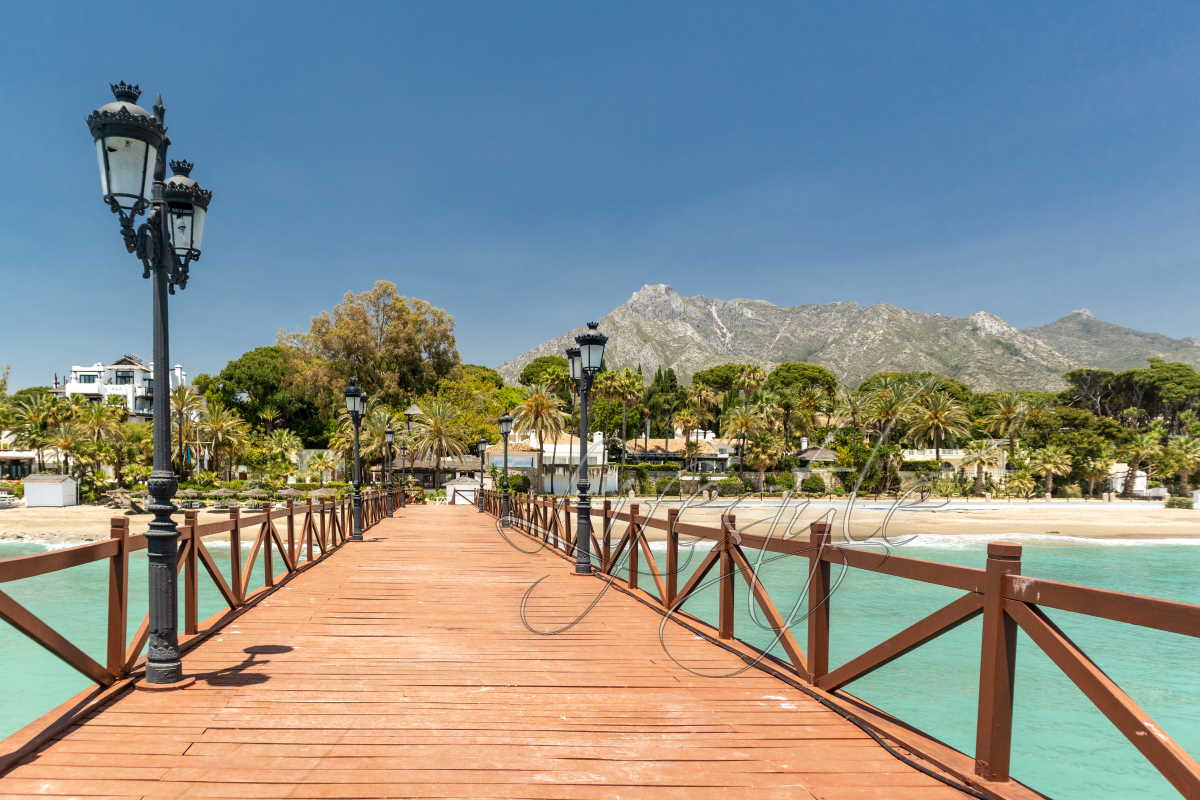British citizens / UK nationals now have to follow the same process as other non-EU national citizens of third countries to get Spanish residency, i.e. there is a requirement to first obtain a visa.
The financial means required for a British Citizen / UK national to obtain a residency visa, is a lot higher than it was when the UK was in the EU. A single applicant needs to have around €30k per year in either income or savings, whereas a citizen of an EU country €6k is sufficient.
British nationals also have to obtain a police criminal report, get official supporting documents legalised, and medical certificates are also required for most visa applications.
Spanish Residency Visas for British Citizens and UK Nationals
The majority of Spanish residency visa applications are made through the Spanish Consulate either in London, Manchester or Edinburgh, depending on which part of the UK you live. The Spanish Consulates now contract out most of their visa application processing to a handling company BLS International.
Last year the Digital Nomad residency scheme came into effect and this, the same as Golden Visa, can be applied for through the Consulates, or the application can be made in Spain. All other Spanish residency visa applications have to be made in person at the Spanish Consulate / BLS in the UK, before you travel to Spain.
Once you arrive in Spain with the relevant visa, (or otherwise meeting residency eligibility, you can begin your application for the Spanish residency card, the TIE, ‘tarjeta de identidad de extranjero‘.
The following is a summary of the various types of Spanish residency visas that British Citizens and UK Nationals can apply for. The most popular is the Non-Lucrative, followed by the Digital Nomad and then the Golden Visa.
Non-lucrative visa for Spanish Residency
The non-lucrative visa for Spanish residency is for those who have means to support themselves without working whilst residing in Spain. It is ‘for non-working individuals (with a reliable, ongoing source of income or sufficient savings), who wish to reside in Spain for more than 3 months’.
Individuals who have Spanish residency under this scheme, cannot engage in any type of ‘economic’ activity during the period of residency in Spain. To obtain the visa, you must have private medical insurance or access to state healthcare through the S1, and prove that you have either sufficient capital to fund the duration of the residency, or adequate secure passive income, e.g. pension or investment income. The financial means requirement for a married couple is €37k per year.
To maintain Non-lucrative Spanish residency, you have to commit to living in Spain full-time, i.e. to spend the majority of time in Spain and become a Spanish tax payer. Immigration check at renewal that the renewing applicants tax affairs in Spain are up to date.
Investment Visa for Spanish Residency
More commonly known as the ‘Golden Visa‘, this residency scheme allowed and their families who meet the requirements, to secure Spanish residency by investing in Spain.
The minimum qualifying investment was €500.000 into real estate. Larger investments such as a €1m bank deposits, or purchase of €2m shares in a Spanish company or Spanish Government bonds are also eligible.
At the end of 2024 legislation was passed to close this scheme. The law comes into effect 3rd April 2025. Up to that date it is still possible to apply for the Golden Visa. Read more.
Digital Nomad Visa
Available from early 2023, this residency scheme is for remote workers.
This new Spanish visa and residency provides a special regime for people from non-EU countries to live in Spain and work remotely for a company outside of Spain.
You apply either for a 1 year visa via the Spanish consulate in the UK, or directly in Spain for a 3 year residency permit.
More information about the digital nomad visa and teleworkers residency can be found here: Digital Nomad Visa
Self Employment Visas for Spanish Residency
The Self Employment Visa is for British citizens / UK nationals wishing to start a business in Spain, or move or expand their existing business to Spain, working on a self-employed baseis.
A self-employment visa applicant, must demonstrate that their proposed business activity in Spain is viable and also that they have sufficient financial means to fund themselves and their planned business activity through to profitability. The minimum requirement of personal funding is approximately €13k per year. Business running costs, e.g. social security are counted in addition to this.
Those with a high-tech, high-growth business idea and the qualifications to pull it off can also apply for an Entrepreneur Visa. The business plan has to be approved by the Ministry of Economy and Competitiveness and the applicant must have the financial means to start the business.
The self-employment visa is a temporary work residency, valid for one years and renewable.
Work Visas for Spanish Residency
To apply for a work visa, a British citizens / UK national will need to have an offer and contract of employment from a Spanish employer. The employer has to show that they have not been able to find suitable candidate resident in Spain or the EU already. There are a few exemptions from the requirement for a Spanish work visa. For example, scientists or teachers invited by a Spanish University or research institution.
Student visa
As the name suggests, this visa allows Spanish residency for those coming to study in Spain. You can apply for the student visa for undergraduate courses, Masters, Ph.D. and other short term qualifying studies.
The student visa is valid for one year and renewable. It also allows work for up to 20 hours per week on an internship, gives easy access to getting a work permit once your studies have finished. Student visas also allow the students family members to get Spanish residency subject to the conditions of financial means being met.
Applying for the Spanish Residency Foreigners ID Card (TIE) for Non-EU Nationals
Once you have arrived in Spain with the relevant visa or otherwise meeting the eligibility for Spanish residency, you can begin the process to apply for Spanish your residency card or TIE as it’s called, ‘tarjeta de identidad de extranjero‘.
The application for the TIE has to be made in person at the Provincial Foreigners Office, or National Police station in the area that you are living. You go along with your residency approval letter or visa, completed (EX17) application form, modelo 790 fee payment form stamped as paid or with the payment receipt, photos, and copy of your passport. Everything is checked and they take your fingerprints. The card is ready after a few weeks, it is collected from the police station either by appointment or at specific time designated for card collections.
Residency Certificate for EU Passport Holder or Family Member of an EU Citizen
Many British nationals have family members from EU countries or have or are able to obtain passports from EU countries through ancestry. For example, it’s estimated that 10% of the population of the UK have at least one Irish grandparent, which means that they could get an Irish passport.
If this applies to you the residency options are different. You can read more about these on in the following pages:
Spanish Residency for non-EU family members of an EU citizen in Spain
Requirements once you have Spanish Residency
There is no requirement for holders of Investor residency or ‘Golden Visa’ to spend a minimum number of days in Spain, however to renew a Non-Lucrative Visa, the holder has to prove that they spent at least 6 months of the 1 year duration of their residency in Spain. So holders of the Golden Visa can keep their tax affairs out of Spain, however this is difficult to do with the Non-Lucrative Visa.
You are generally liable to pay taxes in the country in which you reside. Your country of residence is usually deemed to be the one in which you spend 183 days or more in.
Tax for Spanish Residents
If you become tax resident in Spain you pay tax on:
*General income
*Interest on savings and investments
*Capital gains on sale of assets
*Wealth (if your total wealth is €700k or more – €1m including your main home)
*Gifts and inheritance
Taxes apply to worldwide income, interests and assets.
Overseas Assets Declaration
On taking up residency, Spanish residents must declare certain assets they own outside of Spain, such as:
*Property
*Investments
*Savings
*Pensions
*Insurance
Read more about Overseas Assets Declaration in Spain
Planning before taking up Spanish Residency
The process for British Citizens / UK Nationals to get residency in Spain is now a much more involved and lengthier. You can no longer just turn up in Spain and apply. Aside from the formalities of the process itself, prior to applying, there is now the added need to determine which type of residency you qualify for or which will be right for you, and also the tax implications.
Moving to Spain requires detailed planning and understanding of all the in an outs. For this reason many choose to employ the services of specialist like us, to advise and guide them through the process.

